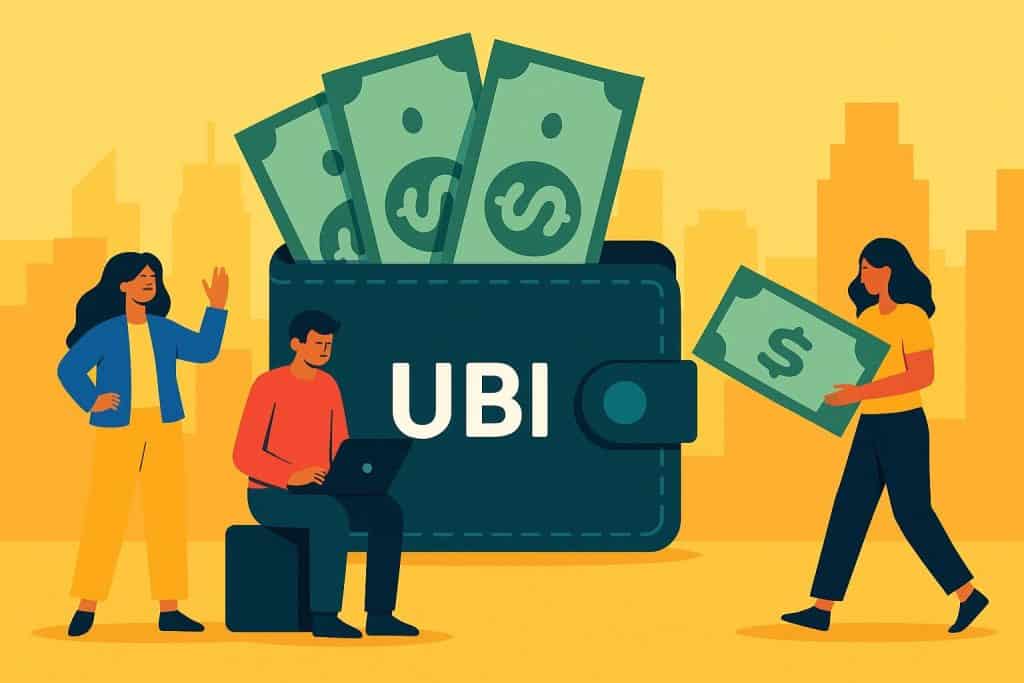We’re no longer theorising about the future of work with AI. We’re living in the shift right now. With artificial intelligence (AI) advancing faster than any previous technological revolution, industries around the world are already being disrupted—and we’re only at the beginning.
How AI Is Already Replacing Human Jobs
From automating customer support to writing code, generating images, and building websites, AI has already started to take over roles traditionally handled by humans. Tools like ChatGPT are writing marketing copy, while design platforms powered by AI such as Framer AI, Durable, and Wix ADI are creating full websites in seconds. Businesses that once needed teams of 10 or 20 can now accomplish similar output with one person and an AI assistant. The future of work with AI is reshaping how we approach tasks and workflows.
Goldman Sachs projects that 300 million full-time jobs could be affected by AI globally. The World Economic Forum suggests over a quarter of jobs in developed economies are at high risk of automation. This isn’t science fiction—it’s happening now.

Which Jobs Are Most at Risk?
Jobs that follow predictable patterns, involve large amounts of data processing, or rely on repeatable logic are particularly vulnerable. This includes:
- Copywriters and content marketers
- Administrative and support roles
- Customer service and telemarketing
- Data analysts and paralegals
- Junior developers and QA testers
Even web designers and developers are seeing massive shifts as AI takes over tasks like layout creation, theme editing, and responsive testing.
What Happens When Millions Lose Their Jobs?
The biggest question governments and economists are trying to answer is: what happens to society when the majority of traditional jobs disappear? With AI replacing the need for human labour in many industries, millions could face long-term unemployment. The concern isn’t just about individuals—it’s about entire economic systems built on employment.
This is where proposals like Universal Basic Income (UBI) and robot taxes come in.

Universal Basic Income (UBI): A Safety Net for the AI Age
UBI is a concept where every citizen receives a regular, unconditional sum of money from the government. The idea is to decouple survival from employment, allowing people to live, learn, or create without being dependent on a job.
UBI has already been piloted in several countries:
- Finland: Found it improved well-being and encouraged entrepreneurship.
- Spain: Launched a basic income program during COVID-19.
- US cities: Small-scale tests in Oakland, Stockton, and others showed promising outcomes.
Supporters like Andrew Yang, Elon Musk, and OpenAI CEO Sam Altman believe UBI is inevitable as AI takes over more work.
Robot Taxes and the AI Dividend
Another idea is the “robot tax” proposed by Bill Gates. It suggests that if a robot (or AI system) replaces a human worker, the business should pay a tax equivalent to the payroll tax that would have been paid for that employee. This money would help fund UBI, healthcare, and job retraining.
This approach incentivises companies to think twice before automating without considering the social costs.
The Future of Work: What Jobs Will Remain?
Jobs that require emotional intelligence, creativity, trust, or hands-on physical presence are less likely to be automated. This includes:
- Therapists and life coaches
- Creative directors and brand strategists
- Skilled trades like plumbing or roofing
- Roles involving complex human interaction
Freelancers who adapt—those who use AI as a tool rather than fear it—will have the greatest chance of success.
Adapting as a Freelancer in the Age of AI
Freelancers should stop competing with AI on speed or output and instead focus on:
- Strategy: Helping clients make smarter decisions.
- Communication: Understanding client needs better than any tool.
- Results: Focusing on ROI, conversions, and tangible business outcomes.
Position your service like this:
Instead of “I’ll build you a website,” say “I’ll build you a lead generation machine that books calls while you sleep.”
What You Can Do Now to Prepare
- Learn how to use AI tools: Think of them as your new creative team.
- Focus on outcome-driven positioning: Solve real business problems.
- Start building digital leverage: Courses, content, email lists, etc.
- Stay adaptable: The tools will change, but your thinking can stay sharp.
Further Reading and Resources
To dive deeper, check out these external sources:
We’re not heading for a dystopia—but we are heading into uncharted territory. Those who adapt will thrive.



